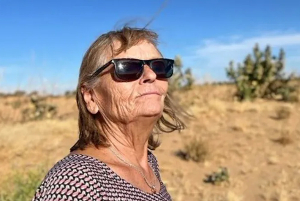When I see a glut in seasonal farm produce or commodities, I think about the industrious Bono woman who never let go of waste of any foodstuff in her kitchen.
The mango season is upon us now, and as kids pelt stones to pick the early ripening of this sweet tropical fruit, in its bumper season, the mangoes rot under their trees.
Meanwhile, in other regions and countries, people are starved of this priced and essential vitamin-laden mango juice.
Sometimes, as a patriotic Ghanaian, I wonder how useful our economics books have been for us as a country since independence, vis-à-vis the traditional way our ancestors preserved and made use of every grain in their kitchen despite they were bereft of any formal education.
In my native Goka for instance, in my growing up days, a well-cultured Bono housewife will never dare incur the wrath of the patriarch of the house if Bɔɔdeɛ (plantain) will rot, or Mankani (coco yam) will dry, or Bankye (cassava) will end up on the refuse dump.
When the plantain is not useful for fufu (a paste mixture of cassava and plantain) soon after harvesting it green, the same produce can be in handy to prepare "Ampesi" (boiled plantain with stew), fried in oil when ripe, or prepare Akankyeɛ (ripe plantain and corn dough), or for "Mpɔtɔmpɔtɔ" (boiled and mashed ripe plantain paste).
Some of the listed staples, especially the "Akankyeɛ" can last for many days, and are recommended for people embarking on a long journey. And also for hunters who spend many days in the forest hunting for game.
At times, cocoyams can be substituted for many Bono cuisines in the absence of the much sought-after plantain, which indeed history cites originated from the Bonoland's Gyaaman enclave.
Cocoyam, locally known as |"Mankani" is used in fufu preparation, for "Ampesi", or fried as sliced plantain chips to last for many days.
"Mankani" can be roasted and mashed for "Ɛtɔ/Tɔ". The recipe is ready when you add sliced onion fried in palm oil, add chillies, salt, and boiled egg.
With the availability of your palm oil, or "Abɛ-ngo", "Mankani" and "Bɔɔdeɛ" become so useful for the Bono woman's kitchen.
"Nnuhuu" (boiled and stirred coco yam with palm oil) is another Bono food that will keep a visitor returning again and again.
It doesn't take time and a big budget to prepare "Nnuhuu". Your cocoyam, palm oil, and Koobi or salted fish are the main ingredients needed to cook this food that derives its name from literally making one lazy after eating it, particularly during working hours. You'll regret eating enough of it if you have to clear your weedy farm or lay mounds, or these days, not good for those doing paperwork.
Imagine Bono women are given charge to economically manage the crude produce our arable soil churns out perennially, it'll only be malicious for one to suspect that some households in Ghana will go to bed on an empty stomach. Ghana will not turn the tables to export food to other countries instead the opposite.
Not long ago, I heard some farmers cry that their cassava was glutting due to a lack of buyers. The Agricultural Ministry intervened by charting the produce from the farm source to market centres. It was later realized that the market women took advantage of this policy more than the average Ghanaian who saw food prices soaring through the skies.
Left for the management of the Bono woman of this root crop, the cassava will be peeled and dried for cassava flour. If her expertise cannot afford her the industrial mind to produce beer and wine, the flour can prepare a sumptuous "Konkonte" (tapioca) or face the wall.
The Bono woman in the Ivory Coast will use the same cassava to prepare "Akyɛkyɛ", with improvisation tools as in their other West African counterparts making Gari out of it.
It's Ghana Month, let's grow Ghana and eat Ghana.
Opinions of Sunday, 3 March 2024
Columnist: Charles Yeboah
Ghana Month: The Bono woman and economics
Entertainment














